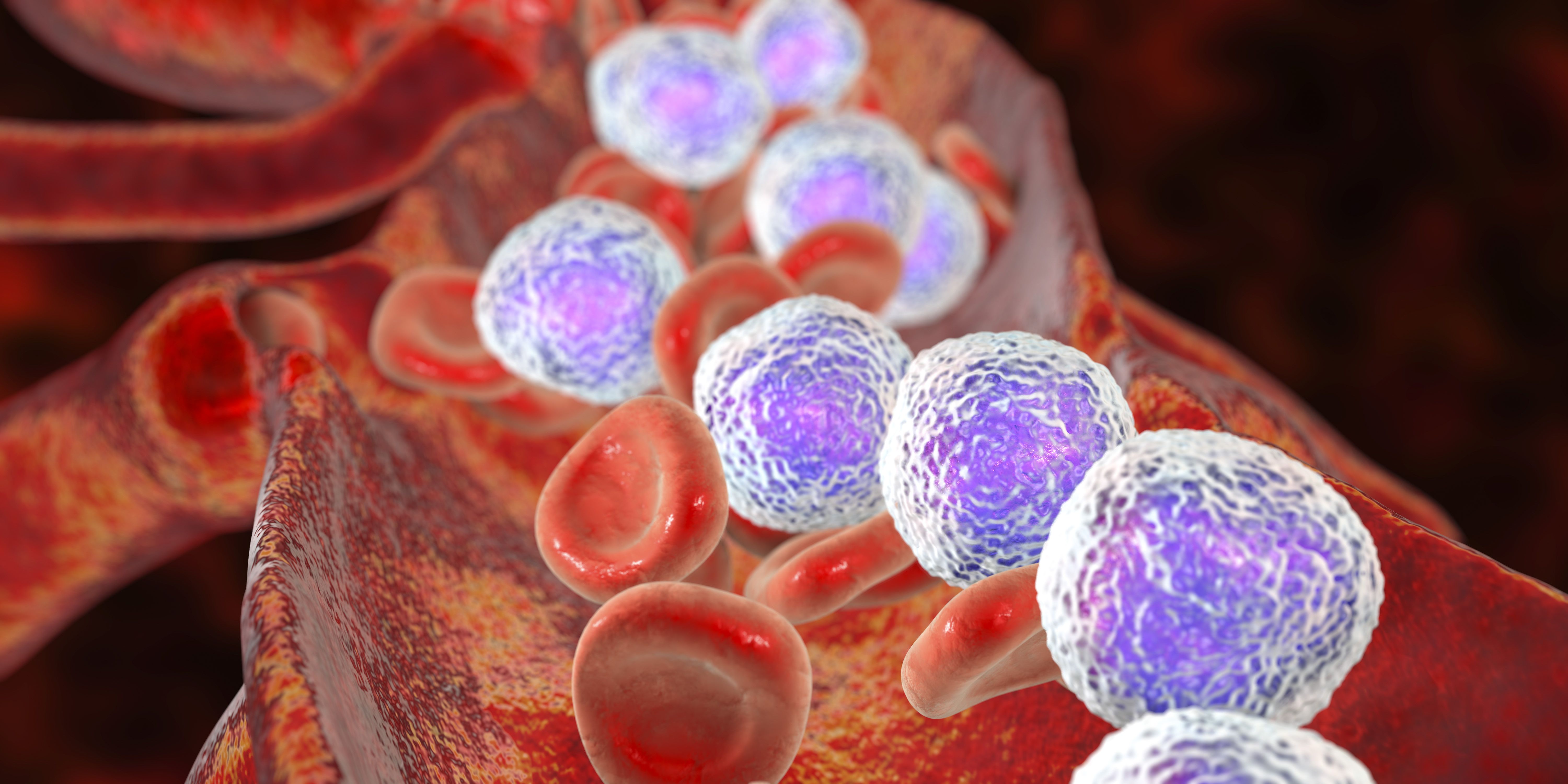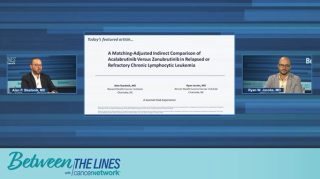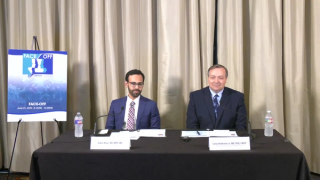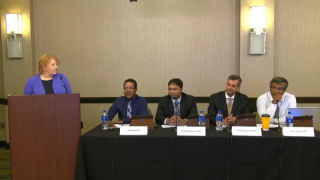
Leukemia
Latest News
Latest Videos

CME Content
More News
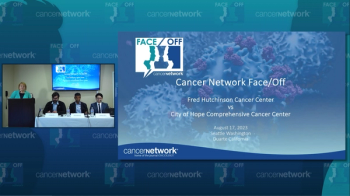
An overview of the program agenda and introduction of expert panelists from the Fred Hutchinson Cancer Center and City of Hope teams.
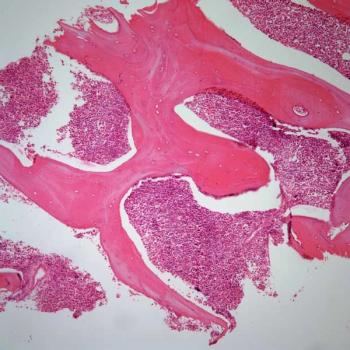
Asciminib may be more tolerable than bosutinib in the treatment of those with chronic myeloid leukemia, according to Michael Deininger, MD.

It may be an optimal approach to improve first-line treatment options to prevent relapse in those with T-cell acute lymphoblastic leukemia, according to Kristen O’Dwyer, MD.

Investigators report no differences in rates of graft-versus-host-disease with intensive or non-intensive consolidation chemotherapy prior to transplantation for elderly patients with acute myeloid leukemia.
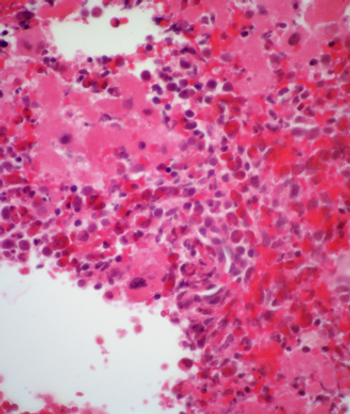
A major molecular response at 3 months appears to increase the probability of overall survival in patients treated with ponatinib for chronic-phase chronic myeloid leukemia in the phase 2 PACE trial.
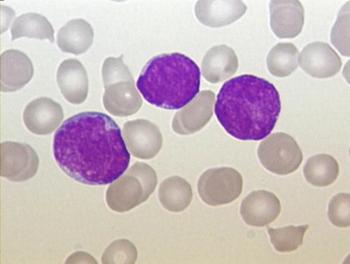
Ponatinib also produces an improvement in progression-free survival compared with imatinib among those with Philadelphia chromosome-positive acute lymphoblastic leukemia in the phase 3 PhALLCON trial.

Investigators report a higher recurrence-free survival rate for patients receiving a pediatric-inspired protocol regimen compared with an adult chemotherapy regimen in a retrospective review.

Data from the phase 3 ASCEND trial and a phase 1/2 trial support the National Medical Products Administration’s approval of acalabrutinib in China as a treatment for chronic lymphocytic leukemia.

Results from the phase 1/2 BEXMAB study assessing bexmarilimab show promising activity in patients with acute myeloid leukemia.

Investigators of a prospective study of 1253 patients find that outcomes with the experimental homoharringtonine-based regimen either meet or exceed those with a classic etoposide-based regimen.
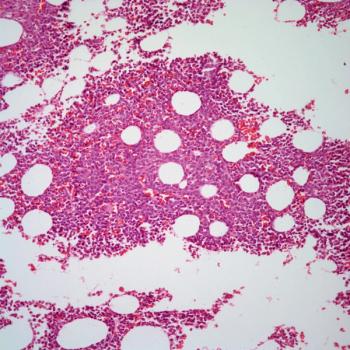
Patients who are already enrolled on clinical trials assessing magrolimab in acute myeloid leukemia are eligible to continue treatment with the agent.

Findings from a real-world study highlight that treatment utilization, such as agents for managing tumor lysis syndrome, appears to be more intense when older patients with chronic lymphocytic leukemia initiate treatment with venetoclax plus obinutuzumab.

Data from a next-generation sequencing analysis indicate that XPO1 may be a novel biomarker predictive of a decreased time to first treatment in patients with early-stage chronic lymphocytic leukemia.

Naval G. Daver, MD, reviewed current treatment options in acute myeloid leukemia, specifically the use of menin inhibitors in the space.
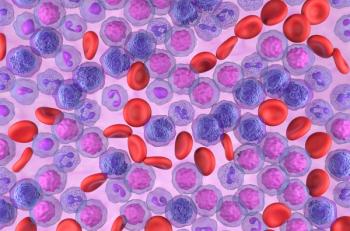
Investigators will work with the FDA to assess the root cause of a grade 5 serious adverse effect in phase 2 PLAT-08 trial evaluating SC-DARIC33 in pediatric acute myeloid leukemia.
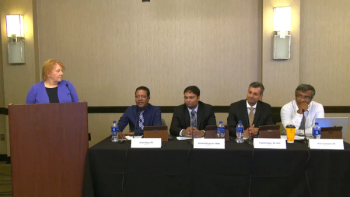
Following a review of data with low-dose dasatinib in chronic myeloid leukemia, key opinion leaders from the Mayo Clinic and UT Southwestern consider its role in real-world practice.
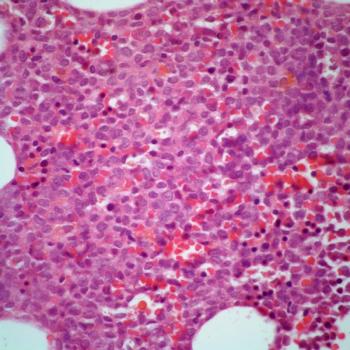
The experimental agent appears tolerable in patients with newly diagnosed FLT3-mutated acute myeloid leukemia in a phase 1b trial.
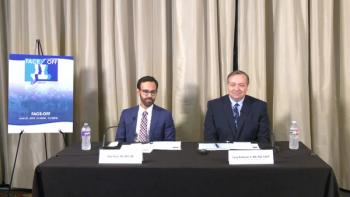
In the last presentation of the session, Abhishek Mangaonkar, MBBS, details clinical trial data with low-dose dasatinib in patients with chronic myeloid leukemia.

In this cross Q&A, both the Mayo Clinic and UT Southwestern teams share insight on the role of olverembatinib in relapsed/refractory chronic myeloid leukemia.
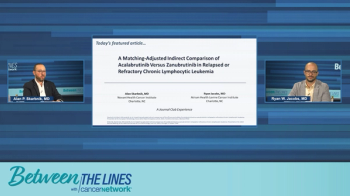
Closing out their discussion on relapsed/refractory chronic lymphocytic leukemia, key opinion leaders consider important takeaways from the indirect comparison study of acalabrutinib versus zanubrutinib and identify unmet needs in the treatment landscape.

Key safety data from the indirect comparison study of acalabrutinib versus zanubrutinib in patients with relapsed/refractory chronic lymphocytic leukemia.

Combined with chemotherapy, blinatumomab appears tolerable and beneficial in a subgroup of pediatric patients with B-cell acute lymphoblastic leukemia in first relapse but does not yield better survival outcomes in the overall population.

A comprehensive review of chronic myeloid leukemia olverembatinib data led by expert Kebede Begna, MD, from the Mayo Clinic team.

The potential reduction in relapse in patients with unresectable chronic lymphocytic leukemia appears to happen regardless of minimal residual disease status 3 months post-treatment and immunoglobulin heavy-chain variable region mutational status.

JZP458 is part of a multi-agent chemotherapy regimen for lymphoblastic lymphoma and acute lymphoblastic leukemia, and can be used for adult and pediatric patients.


